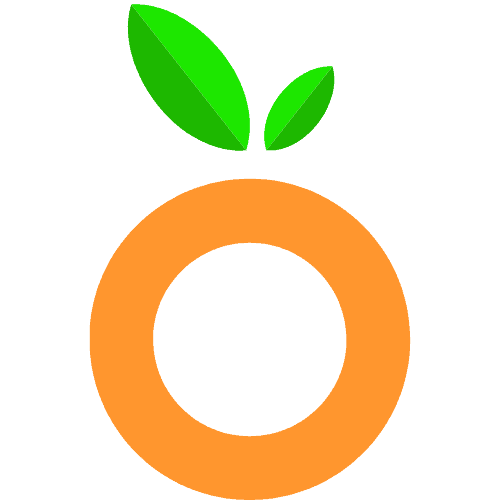7 Best Web3 Project Ideas
We’re reader-supported; we may earn a commission from links in this article.
If you’re looking for inspiration for your next web3 project, look no further!
In this article, I will discuss 7 different web3 project ideas that have worked and will get you inspired to start your own.
I’ll simply describe them in detail, followed by some examples of how you can build them too.
This article has lots to cover, so read on for more!
What Are The Best Web3 Project Ideas for Blockchain Developers?
1. Decentralized Social Media Platforms
For the first project idea, you can consider building a decentralized social media platform.
One of the most popular web applications today is social media. Twitter, Facebook, and Instagram are all centralized platforms that rely on a single entity to control the data.
However, in web3, decentralization can help consumers enjoy a social media platform that is censorship-resistant and not controlled by any one party.
There are a few examples of web-based decentralized social media platforms that you can explore, such as Steemit and DTube. These platforms allow users to create content and get rewarded in cryptocurrency for their efforts.
As such, this can be a great idea for blockchain projects if you love media and want to produce a decentralized version of the current dominant web 2.0 video streaming platform: YouTube.
To build your own decentralized social media platform on the web, you’ll need to use a blockchain protocol that supports the use of a smart contract. For example, the Ethereum blockchain can be used to create a decentralized social media application.
In terms of advantages, a decentralized social media platform gives users more control over their data. In addition, because there is no central authority, the platform is censorship-resistant.
Viewers and content creators can also be rewarded for viewing and creating content respectively on the platform.
Some disadvantages of decentralized social media platforms include the lack of a central authority (which can be both an advantage and a disadvantage), as well as the fact that they’re still in their early stages of development.
As such, there is currently a limited user base on these platforms.
Nonetheless, I believe that decentralized social media platforms have a lot of potential going forward and will become more popular in the web3 world.
It’s one of the best blockchain projects to start in the web3 realm!
2. Decentralized Search Engines
Another great project idea for web3 services is decentralized search engines.
Blockchain technology is now also mature enough to handle web apps down as decentralized applications (dApps).
Just like social media platforms, search engines are currently centralized and controlled by a single entity (in this case, Google). This centralization has led to concerns about data privacy and censorship.
In such cases, you can choose to build a search engine that’s run by a decentralized autonomous organization (DAO), which will determine the decisions made in the web3 project.
In web3, there are a few decentralized search engine blockchain projects that you can explore, such as Presearch and BitClave.
In order to begin this web3 project, you’ll need to know how to develop a smart contract, and more specifically Ethereum smart contracts, as the Ethereum blockchain is one of the most used in the crypto industry today.
However, as search engines are highly complex, you’ll need to know how to handle more advanced data structures and their relationships well.
3. Decentralized E-commerce Platforms
E-commerce has seen a rise in popularity in recent years, especially with the contactless spending habits that consumers have developed over the COVID-19 pandemic.
However, just like social media platforms and search engines, e-commerce platforms are currently centralized. The most popular e-commerce platform today is Amazon.
In web3 world, there are now decentralized versions of e-commerce platforms that run on the blockchain network. These web-based platforms are called decentralized apps (dApps).
You can create E-commerce platforms on dApps built on an Ethereum smart contract coded in solidity.
4. Decentralized Data Storage
One of the less-known web3 projects out there is to use blockchain technology for cloud storage.
Many people know about cloud computing and cloud storage, but not many know about decentralized cloud storage systems.
This is a great project idea because many consumers these days seek to store their storage in a decentralized way that isn’t tied to their identity and can remain safe.
Like before, the web3 cloud storage system can be built on an Ethereum smart contract, and even store digital assets if you’d like.
The blockchain lets your project tap into the potential of decentralized data, not just for cloud storage.
Decentralizing data in general is a great way to ensure data is secured for both the customer and businesses.
But decentralized data still needs a good management tool to be of real value, so that is an intriguing idea for a web3 project.
Decentralized DBMS (database management system) solutions on the blockchain are a great market to consider.
The best example is Inery, which uses its Layer-1 blockchain to give users a secured, scalable way to manage their databases with more control over their data.
5. Decentralized Messaging Applications
In web development, there are many messaging applications that you can develop.
The most popular messaging application today is WhatsApp. However, it’s a centralized application that’s owned by Facebook.
This has led to concerns about data privacy and censorship on the platform. In web development, you can create decentralized versions of these messaging applications that use the blockchain.
There are many web-based decentralized messaging applications that you can explore, such as Signal and Telegram.
However, these aren’t run using Decentralized Autonomous Organizations (DAOs) and are still subject to the same centralized control as any other tech giants.
Running such a blockchain project with a DAO helps the holders make democratized decisions using a voting system for a change to be made in the project.
Through the use of a simple smart contract, you can also include features such as payment methods, and NFT visualization on profile pictures.
To develop a decentralized messaging application, you’ll need to be well-versed in web development technologies such as advanced data structures, HTML, CSS, and JavaScript.
You should also have some knowledge about the blockchain and how to develop smart contracts.
6. Decentralized Payment Networks
This is one of the more ambitious blockchain projects you can start in the decentralized finance niche.
You’ll need to combine blockchain development expertise with decentralized finance (DeFi) in order to build out this project well.
For the longest time, payment platforms have been centralized. The most popular payment platform today is PayPal.
However, web-based decentralized versions of these platforms are beginning to emerge that use blockchain tech. These include platforms such as dApps built on websites that allow you to connect your wallet to pay for a service or product.
You will need to spend more time creating the digital infrastructure and even a digital asset marketplace that can handle crypto assets such as NFTs and more.
Many these days utilize MetaMask, a Decentralized wallet by Consensys to store their digital assets, whether that be cryptocurrencies or NFTs.
However, there are many web-based decentralized payment platforms that you can explore, such as Coinbase Commerce and BitPay.
To develop a decentralized payment platform, you’ll need to be well-versed in web development technologies such as HTML, CSS, and JavaScript.
You should also have some knowledge about blockchain technology and how to build smart contracts.
The web-based decentralized payment platform you develop should also be easy to use and have a user-friendly interface.
Payment platforms such as PayPal typically take a cut of the transaction fees. When developing your own web-based decentralized payment platform, you can choose to either charge transaction fees or not.
It’s important to note that web-based decentralized payment platforms are still in their early stages of development.
As such, there are many challenges you’ll face when developing such a platform. These include issues with scaling, user adoption, and liquidity.
Despite these challenges, developing a web-based decentralized payment platform is a great way to enter the web3 world and decentralized finance.
By combining your web development skills with blockchain technology, you can create a platform that has the potential to revolutionize how we make payments.
Personally, as a blogger part of the blogging community, I think sending payments to foreign countries can be cheaper and more secure through web3 platforms.
7. Decentralized Music Streaming Platforms
Building a Music Streaming Platform that utilizes the power of a smart contract is an underrated business you can consider for your project.
Smart contracts can allow for a more efficient way to pay artists and songwriters for their work.
In the music industry, it’s common for artists to get paid very little for their work. This is because there are so many middlemen involved in the process, such as record labels, distributors, and streaming platforms.
With a web-based decentralized music streaming platform, you can cut out the middlemen and allow artists to get paid more directly for their work.
In addition, you can also use blockchain technology to create a more secure way to store music files. This can help prevent piracy and ensure that artists are getting paid for their work.
To develop a web-based decentralized music streaming platform, you’ll need to be well-versed in web development technologies such as HTML, CSS, and JavaScript.
You should also have some knowledge about blockchain technology and how to develop a smart contract.
If you’re not familiar with how to develop your own smart contract, I recommend taking some online courses or reading some tutorials before starting your project.
Once you’ve got the basics down, you can start planning your web-based decentralized music streaming platform.
Some things to consider include:
- What features will your platform have?
- How will users be able to upload and stream music?
- How will you handle payments?
- What kind of security measures will you need to put in place?
Once you’ve got a good idea of how your platform will work, look at other competing web3 projects, then start to build Ethereum smart contracts that can work for your USP.
What are Smart Contracts?
A smart contract is a self-executing contract with the terms of the agreement between buyer and seller being directly written into lines of code. Smart contract code can be in either Rust programming language or the Solidity programming language. Smart contracts allow for the convenient automation of a digital contract, which is executed using blockchain technology.
Smart contracts are often associated with blockchain platforms such as Ethereum, which provides a decentralized virtual machine capable of executing smart contract code.
Ethereum smart contracts today are used for a wide range of applications, including financial transactions, supply chain management, and legal agreements.
Some choose to use smart contracts for blockchain application development – to build decentralized applications in web3 such as messaging apps, crypto exchanges, and more.
What is Blockchain Technology?
What is Ethereum Smart Contracts Used For?
Ethereum is a blockchain platform that allows developers to create and deploy smart contracts.
A smart contract can be used for a wide range of applications, including:
- Decentralized finance (DeFi) applications such as lending, borrowing, and trading.
- Supply chain management and tracking, enabling secure and transparent tracking of goods and materials.
- Gaming and prediction markets, allowing for decentralized and trustless gambling and forecasting.
- Digital identity and verification, enabling secure and private management of personal information.
- Non-fungible tokens (NFTs) for creating and trading unique digital assets such as art, collectibles, and virtual real estate.
- Governance, enabling decentralized decision-making and voting systems.
- Legal agreements, such as smart legal contracts, can execute automatically and securely when certain conditions are met.
- Stablecoins, which are digital assets pegged to the value of a fiat currency or other stable asset.
These are just a few examples of the many ways in which smart contracts can be used on the Ethereum platform, and the use case for smart contracts is expanding as the technology matures.
Final Thoughts
I hope you have found a blockchain project idea that worked well for you.
There are many web development projects you can work on, but if you want to stand out from the crowd, I recommend choosing a web-based project that utilizes blockchain technology.
With the right team and some hard work, you can build a platform that has the potential to change how we interact with the internet.
All the best in building and choosing a web3 project idea for your next blockchain project!
Thanks for reading and happy building smart contracts for your projects!

Justin Chia
Justin is the author of Justjooz and is a data analyst and AI expert. He is also a Nanyang Technological University (NTU) alumni, majoring in Biological Sciences.
He regularly posts AI and analytics content on LinkedIn, and writes a weekly newsletter, The Juicer, on AI, analytics, tech, and personal development.
To unwind, Justin enjoys gaming and reading.

